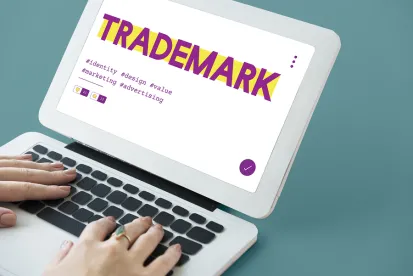Focusvision Worldwide, Inc. (FocusVision) appealed the TTAB’s decision sustaining the opposition to the registration of its mark FOCUSVISION due to a likelihood of confusion with two FOCUS marks owned by Information Builders, Inc. (IBI). With its gaze focused on the factors set forth in In re E. I. DuPont de Nemours & Co., the Federal Circuit upheld the TTAB’s determination that a likelihood of confusion existed between the marks FOCUSVISION, for services including “online access to software for use in collecting, storing, and sharing data from consumer surveys,” in Class 42, and FOCUS for goods including “computer programs for database management”, “computer software for database management,” and “computer database programs for use in connection with decision support, analysis, and reporting programs,” in Class 9.
In looking to the first Dupont factor, the Federal Circuit found the marks confusingly similar. Specifically, the Court rejected FocusVision’s argument that the TTAB had improperly dissected its mark when it found the term “FOCUS” was the dominant element. The TTAB is permitted to give greater weight to one feature of a mark so long as the mark is assessed in its entirety. Because FocusVision had adopted the totality of the registered marks as the first word in its mark, and because the addition of the term “VISION” did not alter the commercial impression of the mark, the TTAB did not err in finding the marks confusingly similar.
The Court then turned to the second DuPont factor to ascertain the similarities of the parties’ goods and services. Although FocusVision argued the goods and services were improperly conflated by the TTAB, the Federal Circuit found that the goods and services overlap and are, at a minimum, closely related. FocusVision also argued the goods and services differed because IBI’s goods do not concern market research. The Federal Circuit, however, pointed out that IBI’s registrations placed no limitations on the field of use. Because the IBI identification does not include an express limitation, IBI could offer its goods in the same field as FocusVision; namely, market research.
The third and fourth Dupont factors compare the parties’ trade channels and purchasers. FocusVision attempted to limit the channels of trade when it argued that its services are offered only through its online web portal. In contrast, IBI’s registrations contain no such limitations regarding its channels of trade. Accordingly, the Court held that the goods and services are presumed to flow through the same trade channels.
FocusVision also asserted that confusion is unlikely because consumers will exercise a high degree of care when purchasing the relatively expensive goods and services of the respective parties. The Federal Circuit was unpersuaded, noting that not every consumer of FocusVision’s services has significant knowledge of market research software and, to the extent they do, even sophisticated consumers are likely to confuse similar marks.
The Federal Circuit then assessed the fifth and sixth Dupont factors which concern the fame of IBI’s mark and whether similar marks are used in connection with similar goods. With respect to the fifth Dupont factor, FocusVision argued that the TTAB erred in finding IBI’s FOCUS marks were at least suggestive. The Court found FocusVision’s argument unconvincing, observing that the marks were registered without a showing of acquired distinctiveness. Further, although IBI’s marks were not famous, evidence of significant sales figures, advertising expenditures, and media attention demonstrated that the marks were commercially strong. Therefore, substantial evidence supported the TTAB’s findings.
Under the sixth Dupont factor, FocusVision asked the Federal Circuit to take judicial notice of several third-party registrations to evidence the weakness of IBI’s marks. The Court refused, finding that FocusVision did not properly make such registrations of record in the TTAB proceeding, the noticed registrations did not provide the requisite context to assess FocusVision’s argument, and that accepting the third-party registrations would expand the Court’s scope of review. As a result, the Court found that substantial evidence supported the Board’s finding that the sixth Dupont factor was neutral.
Lastly, the seventh and eight Dupont factors were reviewed to determine whether any actual confusion existed between the marks and the length of time and conditions under which there has been concurrent use without actual confusion. These factors did not weigh in FocusVision’s favor as the Court highlighted the lack of significant evidence in the record of actual confusion or concurrent usage over a long period of time. Absent such evidence, the Court confirmed the TTAB’s decision to find these two factors to be neutral.
The case is Focusvision Worldwide, Inc. v. Info. Builders, Inc., 2021 USPQ2d 638 (Fed. Cir. 2021).



 />i
/>i

